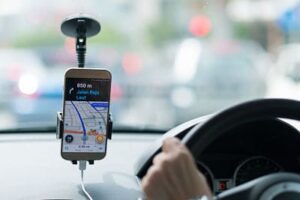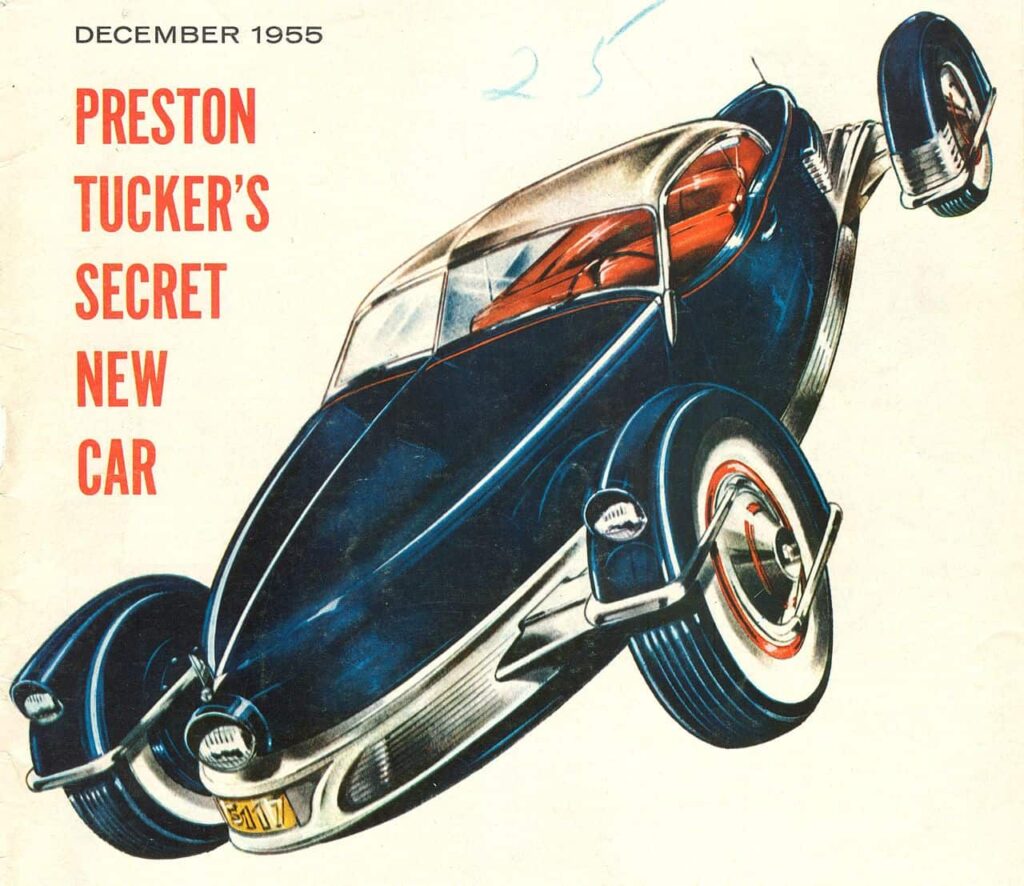 A self-driving Uber struck and killed a woman in a suburb near Phoenix, AZ. Uber has suspended all self-driving vehicle testing following the incident, which is believed to be the first pedestrian death resulting from a self-driving vehicle crash.
A self-driving Uber struck and killed a woman in a suburb near Phoenix, AZ. Uber has suspended all self-driving vehicle testing following the incident, which is believed to be the first pedestrian death resulting from a self-driving vehicle crash.
Uber Hits Pedestrian
On March 18, 2018, at 10 p.m., a Volvo XC90 SUV outfitted with Uber’s sensing system was heading northbound on Curry Road at approximately 38 miles per hour, approaching a busy intersection in Tempe, AZ, a suburb of Phoenix. The vehicle was part of a test of self-driving vehicles being conducted by the ridesharing service. Though there was a safety driver behind the wheel of the Uber, it was traveling in autonomous (self-driving) mode at the time.
As the self-driving Uber approached the intersection, Elaine Herzberg, 49, was crossing the street with her bicycle, roughly 100 yards from the crosswalk. Ms. Herzberg reportedly stepped down from a concrete median and into a lane of traffic, where the Uber struck her, apparently without slowing down.
Ms. Herzberg later died from her injuries at an area hospital.
Trials Halted After Self-Driving Vehicle Crash
The National Transportation Safety Board has opened an investigation into the cause of the fatal crash. However, an early statement from Tempe Chief of Police Sylvia Moir suggested that the pedestrian was likely at fault.
“It’s very clear it would have been difficult to avoid this collision in any kind of mode [autonomous or human-driven] based on how she came from the shadows right into the roadway,” said Chief Moir. “It is dangerous to cross roadways in the evening hour when well-illuminated managed crosswalks are available.
“The driver said it was like a flash, the person walked out in front of them,” she continued. “His first alert to the collision was the sound of the collision.”
Nevertheless, Uber announced that it would be suspending its self-driving vehicle trials across North America until further notice. The company had been conducting tests of the technology in Phoenix, San Francisco, Pittsburgh, and Toronto.
Earlier Fatalities
The self-driving Uber accident is thought to be the first fatal pedestrian crash involving an autonomous vehicle. However, it is not the first self-driving vehicle crash to result in a fatality, as there are at least two other known deaths on record.
The first known fatal crash involving a vehicle traveling in autonomous mode took place on January 20, 2016, in China’s Hubei Province. On that date, Gao Yuning was operating his Tesla on Autopilot when he crashed into the back of a road-sweeping truck on the highway. His vehicle reportedly did not reduce its speed, and he died from his injuries.
Several months later, there was another fatal self-driving vehicle crash, this time in the United States. On May 7, 2016, Joshua Brown’s Tesla Model S was traveling on Autopilot at 74 miles per hour in Williston, FL. As in the Chinese accident, Mr. Brown’s Tesla did not slow down or take evasive action as it came upon a semi-trailer making a left-hand turn, resulting in a self-driving vehicle crash that killed him instantly.
Tesla investigated the crash that led to Mr. Brown’s death. The automaker concluded that “neither Autopilot nor the driver noticed the white side of the tractor-trailer against a brightly lit sky, so the brake was not applied,” and the car attempted to drive full speed under the trailer, “with the bottom of the trailer impacting the windshield of the Model S.”
Future Crashes Likely
Proponents of autonomous technology argue that self-driving vehicles will ultimately save lives because they will eliminate human error, believed to be the cause of up to 90 percent of the 1.2 million vehicular deaths that occur each year around the world.
After all, unlike human beings, self-driving vehicles don’t become distracted, they don’t experience road rage, they don’t fall asleep at the wheel, they don’t get drunk or stoned before speeding off into the night at 100 miles per hour. Self-driving vehicles also have quicker reaction times than people and can be programmed to observe all traffic laws.
Yet despite these advantages over their human-driven counterparts, self-driving vehicles can still make mistakes, and these mistakes can cost lives. As “driverless” vehicles will likely play a larger role on the roadways of the future, so too will self-driving vehicle crashes.
And that driverless future may be coming sooner than we thought. The United States House of Representatives passed the SELF DRIVE Act on September 6, 2017. While its Senate counterpart has yet to reach a full-floor vote, the SELF DRIVE Act as written would allow companies that are building self-driving vehicles to apply for exemptions from the state and federal regulations that govern safety and design. Under the bill, automakers could eventually add as many as 100,000 self-driving vehicles to the road each year. With that many more self-driving vehicles, despite all their safety features, can more self-driving vehicle crashes be far behind?
Fault Still Rests With Driver
Whether or not a vehicle is self-driving, however, the decision-making process for assigning liability in an auto accident remains the same.
According to current law, human beings cannot delegate driving responsibility to their vehicles. Even with a self-driving vehicle, a human must still be ready to override the system and take control. Therefore, the fault for a self-driving vehicle crash, if the self-driving vehicle caused the accident, would still rest with its driver – as would the liability for any injuries resulting from the crash.
Chicago Car Accident Lawyers
As must seem all too clear, even with the most modern of safeguards, crashes will still occur, inflicting serious injury on others through no fault of their own. When this happens, the injured parties may find that they could benefit from the guidance of an experienced lawyer to help them obtain the financial compensation that they deserve, like the Chicago car accident lawyers at GWC Injury Lawyers, Illinois’ largest Personal Injury and Workers’ Compensation law firm.
If you or a loved one have been wrongfully injured, whether from a self-driving vehicle crash or in some other way, please contact GWC today to schedule a free consultation with one of our attorneys. Call our office at (312) 464-1234 or click here to chat with one of our representatives.
<< BACK TO BLOG POSTS